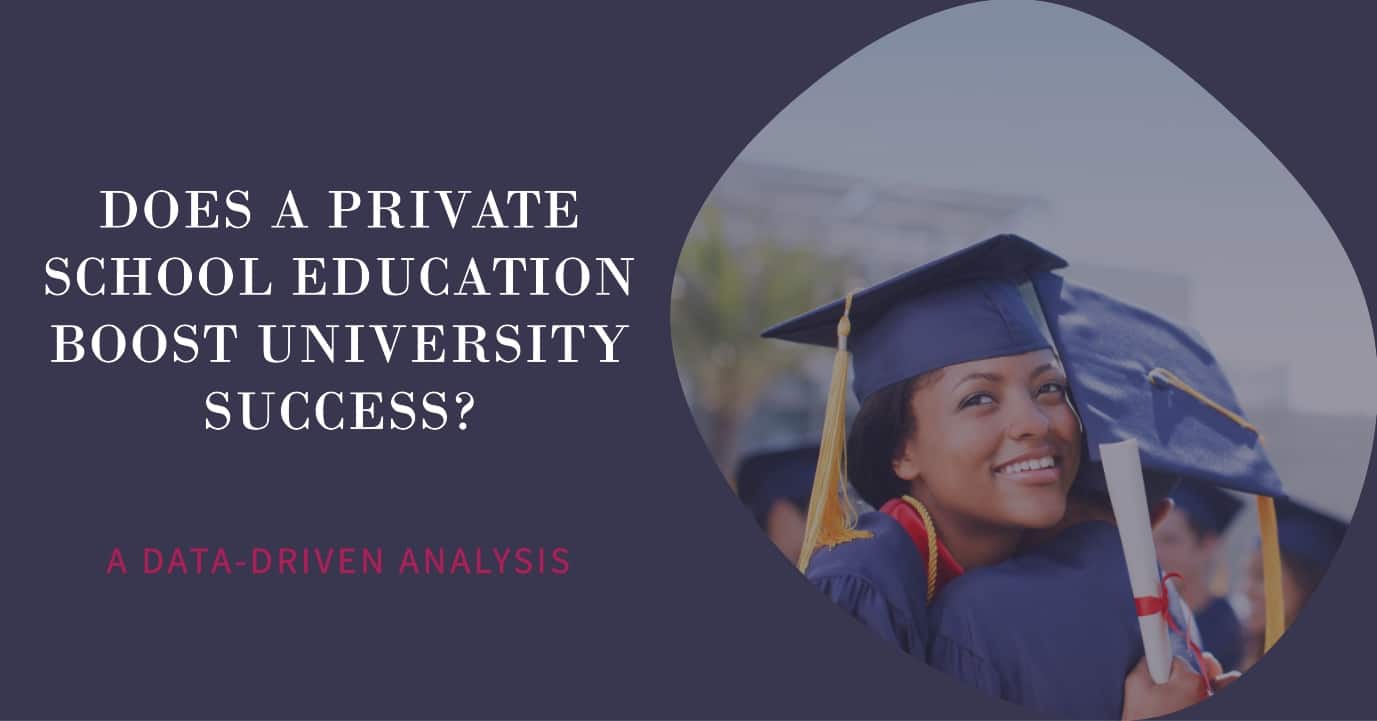
The debate over private versus public schooling’s impact on university success continues to garner attention. Drawing on a study by Morag Henderson, Jake Anders, Francis Green, and Golo Henseke from the Oxford Review of Education, we explore whether students from private schools exhibit superior university performance and progression (Henderson et al., 2020). This analysis aims to provide a balanced view of how educational background influences academic success at the tertiary level.
The Influence of Private Schooling
Private schools are often heralded for their superior preparation of students for higher education. According to Henderson et al., students from private schools are more likely to attend university, particularly top-tier institutions, compared to their public school peers.
Key Findings:
- University Entry Rates: Private school students show a 10% higher rate of university entry than public school students.
- Quality of University Admissions: 60% of private school students gain admission to Russell Group universities, compared to 48% of public school students.
Subject Choice and Academic Attainment
Subject choices at the secondary level play a crucial role in shaping academic futures. Private schools often offer a wider array of subjects, with a focus on those most valued by prestigious universities.
Comparison Table: Subject Choices in Private vs Public Schools
| Subject Area | Private School Enrollment (%) | Public School Enrollment (%) |
|---|---|---|
| STEM Subjects | 55 | 45 |
| Humanities | 30 | 25 |
| Arts | 15 | 30 |
This table illustrates a significant skew towards STEM subjects in private schools, aligning with university preferences for these disciplines.
Progression to University
The transition to university is a pivotal stage for students, and private schools appear to facilitate a more seamless progression through focused preparation and guidance.
Factors Influencing Progression:
- Academic Support: Private schools often have more resources for academic advising and university application support.
- Extracurricular Opportunities: Enhanced access to extracurriculars that bolster university applications, with 70% of private school students participating in advanced science and maths programmes.
Factors Contributing to Success
Beyond the school environment, several external factors significantly influence educational outcomes.
List of Contributing Factors:
- Socioeconomic Status: The majority of private school students come from higher socioeconomic backgrounds, providing additional educational support and opportunities.
- Parental Involvement: Higher levels of parental involvement in education are common in private school communities.
Criticisms and Challenges
While private schooling offers many advantages, it also faces significant criticism, particularly regarding its role in perpetuating educational inequality.
Challenges Faced:
- Inequality of Opportunity: The cost barrier associated with private education limits access for economically disadvantaged students.
- Resource Disparity: The gap in resources between private and public schools can intensify educational inequalities.
CHS and University Progression
Cambridge Home School Online (CHS) has established itself as one of the top British Independent Private schools, ranking in the top 4% nationally. This distinction highlights CHS as a prime choice for families prioritising academic excellence.
The school’s impressive academic outcomes at the GCSE and A-Level stages underscore its commitment to high educational standards:
- GCSE Achievements: 63% of all GCSE grades were A*/A, with 100% of students achieving A* grades in Music and Psychology. French also stood out, with 75% of grades at A*.
- A-Level Success: The highest achieving A-Level student at CHS secured 3 A* Grades and 2 A Grades. Remarkably, every A-Level student received offers from top universities, including prestigious placements such as Cambridge University.
CHS’s alumni have pursued diverse and ambitious paths, studying courses at leading global institutions such as Medicine at Yale, and degrees in Engineering, Law, Aviation, International Relations, and Literature. The school’s robust academic environment not only prepares students for top universities but also supports their entry into competitive and varied fields, celebrating a record of exemplary university progression.
Conclusion
The study by Henderson et al. (2020) suggests that private school students generally have a higher rate of university entry and are more likely to attend prestigious universities. However, the advantages observed stem not only from the educational practices of private schools but also from broader socioeconomic factors. Policymakers must address these disparities to ensure equitable educational opportunities for all students.
In making educational choices, parents and students should consider not only the immediate academic benefits but also the broader social and economic implications of their decisions.
—
FAQ
Do private school students have a higher rate of university entry?
Private school students are approximately 10% more likely to be accepted into university programs compared to their public school counterparts. This statistic highlights a notable difference in university entry rates, suggesting an advantage for those attending private institutions.
Are private school students more likely to be admitted to top-tier universities?
Yes, students from private schools have a higher likelihood of gaining admission to prestigious universities, including the Russell Group in the UK. Around 60% of private school students are accepted into these universities, compared to 48% of students from public schools.
How do subject choices differ between private and public schools?
Private schools tend to offer a broader selection of subjects, with a particular emphasis on STEM (Science, Technology, Engineering, and Mathematics) subjects, which are highly valued by universities. For instance, 55% of private school students enrol in STEM subjects compared to 45% in public schools.
What role does socioeconomic status play in the success of private school students?
Socioeconomic status plays a significant role in the academic success of private school students. Typically, these students come from higher socioeconomic backgrounds, which can afford them more educational resources and opportunities, thereby enhancing their university preparation.
What are the main criticisms faced by private schools?
Private schools often face criticism for contributing to educational inequality. The high costs associated with private education can limit access for economically disadvantaged students, and the disparity in resources between private and public schools can further exacerbate educational inequalities.